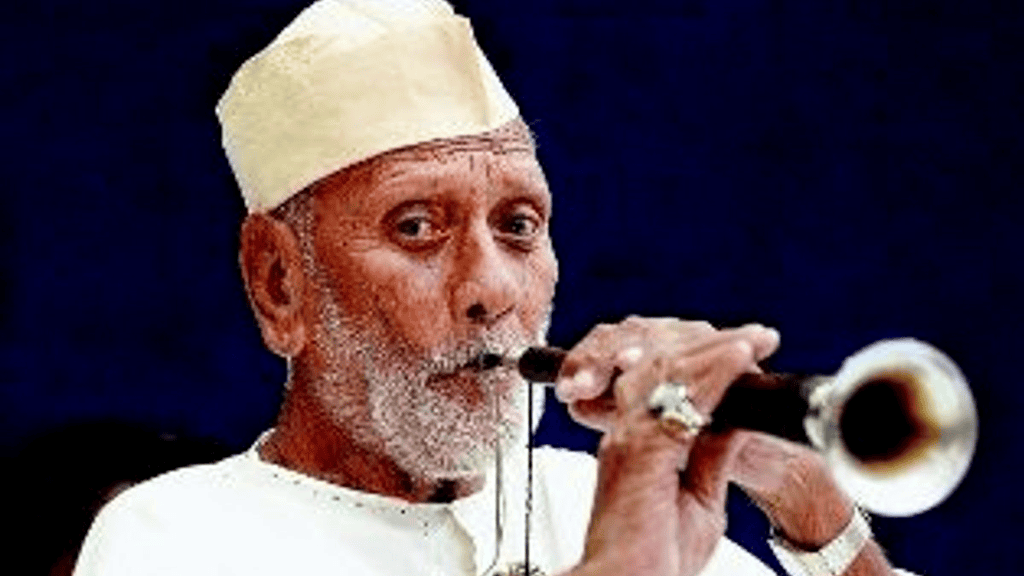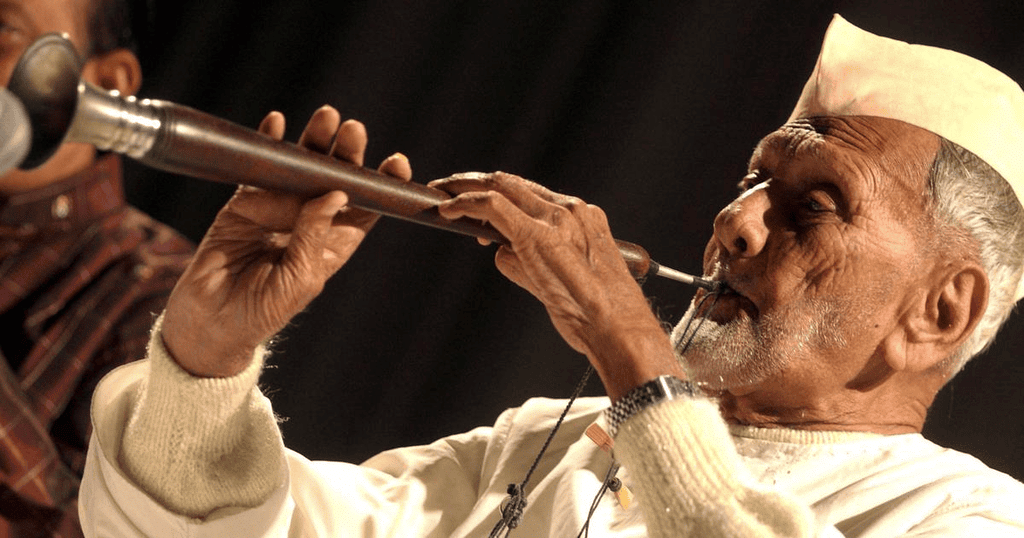The Sound of Music Summary Class 9 English Beehive Chapter 2
| Table of contents |

|
| Part 1 Summary: Evelyn Glennie |

|
| Detailed Summary |

|
| Part 2 Summary: Bismillah Khan |

|
| Theme/Message |

|
| Difficult Words |

|
Part 1 Summary: Evelyn Glennie

Key Points of the Story
- A young girl named Evelyn Glennie, despite being completely deaf, gains admission to the prestigious Royal Academy of Music in London.
- Evelyn’s hearing gradually deteriorates due to nerve damage, and by the age of eleven, she requires hearing aids to compensate for her deafness.
- Refusing to let her condition dictate her future, Evelyn learns to feel music through vibrations in her body, excelling in percussion.
- She achieves tremendous success in music, touring internationally, winning numerous awards, and becoming a world-renowned multipercussionist.
- Despite her deafness, Evelyn's musical performances leave audiences astounded, showcasing her unique connection to the art.
Detailed Summary
- The Beginning of Evelyn's Journey:
Amid the bustling rush-hour crowds on a London underground train platform, a small, thin girl stood, awaiting her train. She looked younger than her seventeen years, her face a mixture of nervous anticipation. This was no ordinary day for Evelyn Glennie—it was her first at the prestigious Royal Academy of Music in London. But unlike most aspiring musicians, Evelyn faced a challenge that made her journey all the more daunting—she was profoundly deaf. - Early Struggles with Hearing Loss: Evelyn's journey toward musical greatness was shaped by her early struggles with hearing loss. Her mother, Isabel Glennie, first noticed something was wrong when, at the age of eight, Evelyn failed to respond to a call while waiting to play the piano. Over time, it became clear that Evelyn's hearing was steadily deteriorating due to nerve damage. By the age of eleven, her hearing had declined significantly, affecting her schoolwork and social interactions. Eventually, she had to confront the reality of her condition and begin using hearing aids.

- Discovering a New Way to "Hear" Music: However, Evelyn refused to allow her deafness to define her future. After observing a girl playing a xylophone, Evelyn felt a deep connection to the instrument and became determined to pursue music, despite her teachers' doubt. It was percussionist Ron Forbes who recognized her potential and devised an innovative method to help her “hear” music through vibrations. Instead of listening to sound, Evelyn learned to feel it through different parts of her body—her feet, legs, and even her fingertips.
- A Rising Star in the Music World: Her extraordinary ability to sense music allowed her to excel, and her talent shone brightly. Evelyn transitioned from orchestral performances to solo work and gained recognition for her distinctive style. When she auditioned for the Royal Academy of Music, she earned top scores, event ally winning numerous prestigious awards by the end of her studies. Her accomplishments were remarkable, not only because of her deafness but also because of her dedication and resilience in mastering more than a thousand percussion instruments.

- Performing Without Sound: What’s most fascinating about Evelyn is her ability to live and perform without sound. She communicates effortlessly and with great confidence, explaining that music is something she feels deeply, with the vibrations of each instrument resonating throughout her body. In 1991, Evelyn was awarded the Royal Philharmonic Society’s Soloist of the Year, a recognition of her incredible contributions to music. The famous percussionist James Blades once remarked on Evelyn's ability to convey emotions through music in ways others could only dream of, describing her connection to sound as deeply profound.
- Dedication to Her Craft and Passion for Education: Evelyn's work ethic is unmatched; she describes herself as a workaholic, devoting countless hours to honing her craft. She performs not only at major venues around the world but also offers free concerts in unusual settings like prisons and hospitals. Her educational work with young musicians is another testament to her passion for music and her desire to inspire the next generation.
- A Legacy of Inspiration: Her story is an inspirational reminder that disabilities are not limitations. Through sheer determination and an unyielding spirit, Evelyn has redefined what it means to experience music, transforming the world of percussion and proving that with passion and perseverance, anything is possible.
Theme/ Message of Part 1
Themes:
- Overcoming adversity is a central theme, as Evelyn’s story demonstrates the triumph of the human spirit over physical challenges.
- Determination and perseverance are key, showcasing Evelyn's refusal to let her deafness deter her from pursuing her passion for music.
Message:
- The narrative emphasizes that resilience, hard work, and dedication can help one overcome obstacles and achieve their dreams, no matter the circumstances.
Difficult Words
1. Daunting: causing fear or intimidation.2. Aspiring: having ambitions to achieve something.
3. Impaired: weakened or damaged.
4. Conceal: to hide or keep secret.
5. Orchestral: relating to an orchestra or orchestral music.
6. Solo Performances: musical performances by a single artist.
7. Workaholic: a person who compulsively works excessively hard.
8. Handicapped: having a physical or mental disability.
9. Resonances: choes or vibrations of sounds.
10. Effortlessly: with ease and without effort.
11. Tingles: causes a slight pricking or stinging sensation.
12. Flawlessly: without any fault or mistake.
13. Lilt: a particular way of speaking.
14. Prestigious: inspiring respect and admiration.
15. Triumph: a great victory or achievement.
Part 2 Summary: Bismillah Khan
 Bismillah Khan
Bismillah Khan
Key Points of the Story
- The musical instrument pungi was banned by Emperor Aurangzeb, but a barber from a family of musicians invented the shehnai, a more melodious and pleasant instrument.
- The shehnai gained recognition for its auspicious sound, becoming integral to North Indian wedding and temple ceremonies.
- Ustad Bismillah Khan emerged as a master of the shehnai, achieving global recognition and receiving numerous prestigious awards.
- Bismillah Khan’s music transcended borders, earning him international acclaim and helping him shape the landscape of Indian classical music.
- Despite his global fame, Bismillah Khan remained deeply attached to his hometowns, Benaras and Dumraon, and his musical legacy continues to embody India’s rich cultural traditions.
Detailed Summary
- Once upon a time in a land where music was both forbidden and revered, a young barber dared to challenge tradition. In the royal residence of Emperor Aurangzeb, the playing of a musical instrument known as the pungi was strictly prohibited due to its unpleasant, shrill sound. The pungi, a reeded noisemaker, seemed destined to fade into obscurity.
 Shehnai
Shehnai
- However, a twist of fate intervened when a barber from a family of musicians, granted access to the royal palace, decided to reinvent the pungi. He crafted a new instrument, with a longer, broader hollow stem and seven holes for producing soft, melodious sounds. This innovation caught the attention of royalty, leading to the birth of a new instrument - the shehnai.
- The shehnai's enchanting sound soon became associated with auspicious occasions, particularly in temples and North Indian weddings. Originally part of the traditional ensemble at royal courts, the shehnai's transition to the classical stage was credited to the legendary Ustad Bismillah Khan.
- Bismillah Khan, hailing from a prestigious lineage of musicians in Bihar, showed early talent in music. From a young age, he immersed himself in the world of shehnai, learning from his uncle and honing his skills by the banks of the Ganga. His dedication and passion for music blossomed, leading him to captivate audiences both in India and abroad.
- At the Allahabad Music Conference, a pivotal moment arrived when the renowned Ustad Faiyaz Khan recognized Bismillah's potential, offering words of encouragement that spurred him on his musical journey. Bismillah Khan's performance at the Red Fort on India's Independence Day marked a historic moment, symbolizing the nation's newfound freedom through the soulful notes of his shehnai.

- Internationally acclaimed, Bismillah Khan's music transcended borders, earning him praises and admiration worldwide. His humility and dedication to his art were exemplified through his refusal to be swayed by the glitz and glamour of the film industry, despite his success in composing music for a few notable films.
- With a string of prestigious awards such as the Padmashri, Padma Bhushan, and Padma Vibhushan, Bismillah Khan's crowning achievement came in 2001 when he was bestowed with India's highest civilian honor, the Bharat Ratna. His impassioned plea to preserve and propagate India's rich musical heritage resonated deeply, emphasizing the universal language of music.
- Despite his global acclaim and travels, Bismillah Khan's heart remained rooted in his beloved towns of Benaras and Dumraon. His unwavering connection to his cultural roots and his ability to bridge religious and musical divides embodied the essence of India's diverse and inclusive heritage.
- Ustad Bismillah Khan's life story serves as a testament to the timeless appeal of India's cultural legacy, where music transcends boundaries of faith and tradition. His legacy lives on, a reminder of the power of music to unite hearts and souls, creating harmony amidst diversity.
- In a emotional moment of national mourning, Ustad Bismillah Khan bid farewell to the world, leaving behind a musical legacy that continues to inspire and enchant generations to come.
Theme/Message
Themes:
- The fusion of tradition and innovation in music.
- The power of music to transcend boundaries and touch hearts globally.
- The significance of cultural roots and personal connections in an artist's life.
Message:
- Music has the ability to bridge cultural divides and create lasting connections.
- Dedication, passion, and hard work can lead to unparalleled success and recognition.
- One's roots and heritage should always be cherished and celebrated, no matter the heights of achievement.
Difficult Words
- auspicious: promising to bring good fortune
- indispensable: without which a piece of work cannot be done
- ensembles: things considered as a group
- melodious: pleasant-sounding
- maestro: a distinguished musician, especially a conductor
- coveted: greatly desired or envied
- celluloid: relating to the film industry
- replicating: to copy or reproduce
- devout: deeply religious
- prolonged: extended in time
- acclaimed: highly praised or recognized
- transcend: to go beyond the limits of
- affection: a gentle feeling of fondness or liking
- heritage: practices that are handed down from the past by tradition
- Reeded: With thin sticks (for sound)Question for Summary: The Sound of MusicTry yourself:Which term describes a musician who is highly praised and recognized for their work?View Solution
|
261 videos|1297 docs|124 tests
|
FAQs on The Sound of Music Summary Class 9 English Beehive Chapter 2
| 1. Who is Evelyn Glennie and what is her significance in the music world? |  |
| 2. What role did Bismillah Khan play in promoting Indian classical music? |  |
| 3. What message does "The Sound of Music" convey regarding the power of music? |  |
| 4. How does Evelyn Glennie's story illustrate resilience and determination? |  |
| 5. Why is Bismillah Khan considered a cultural icon in India? |  |
















